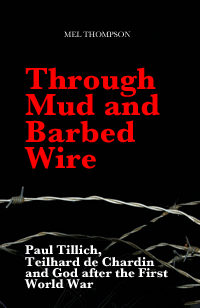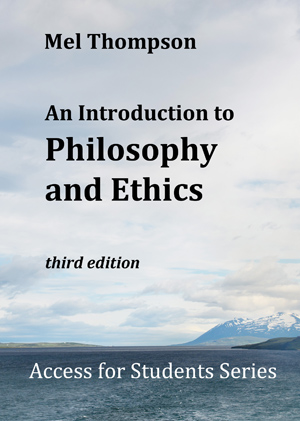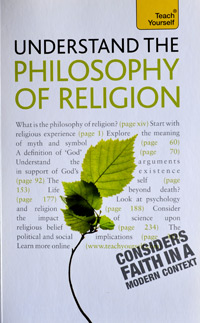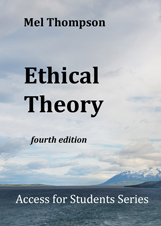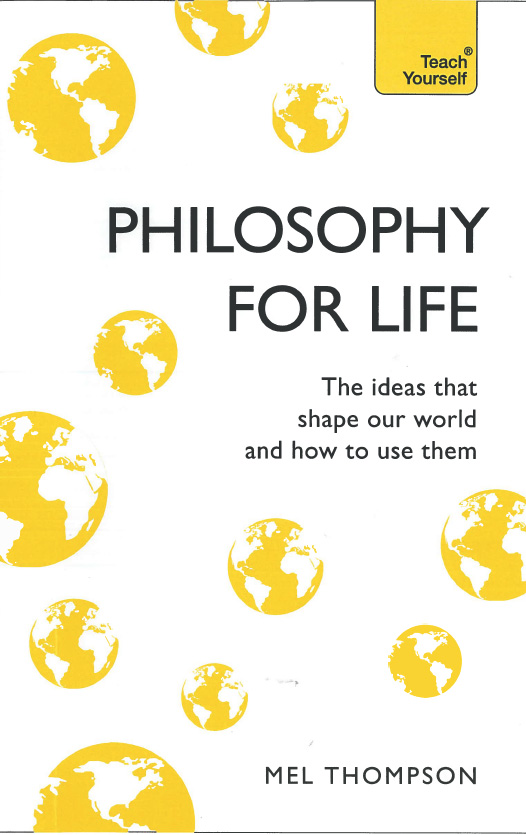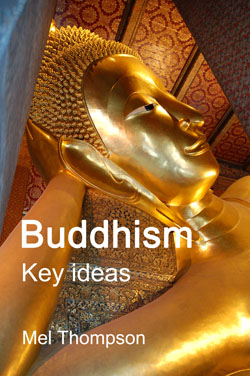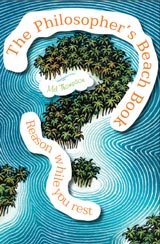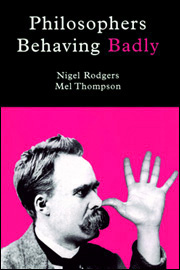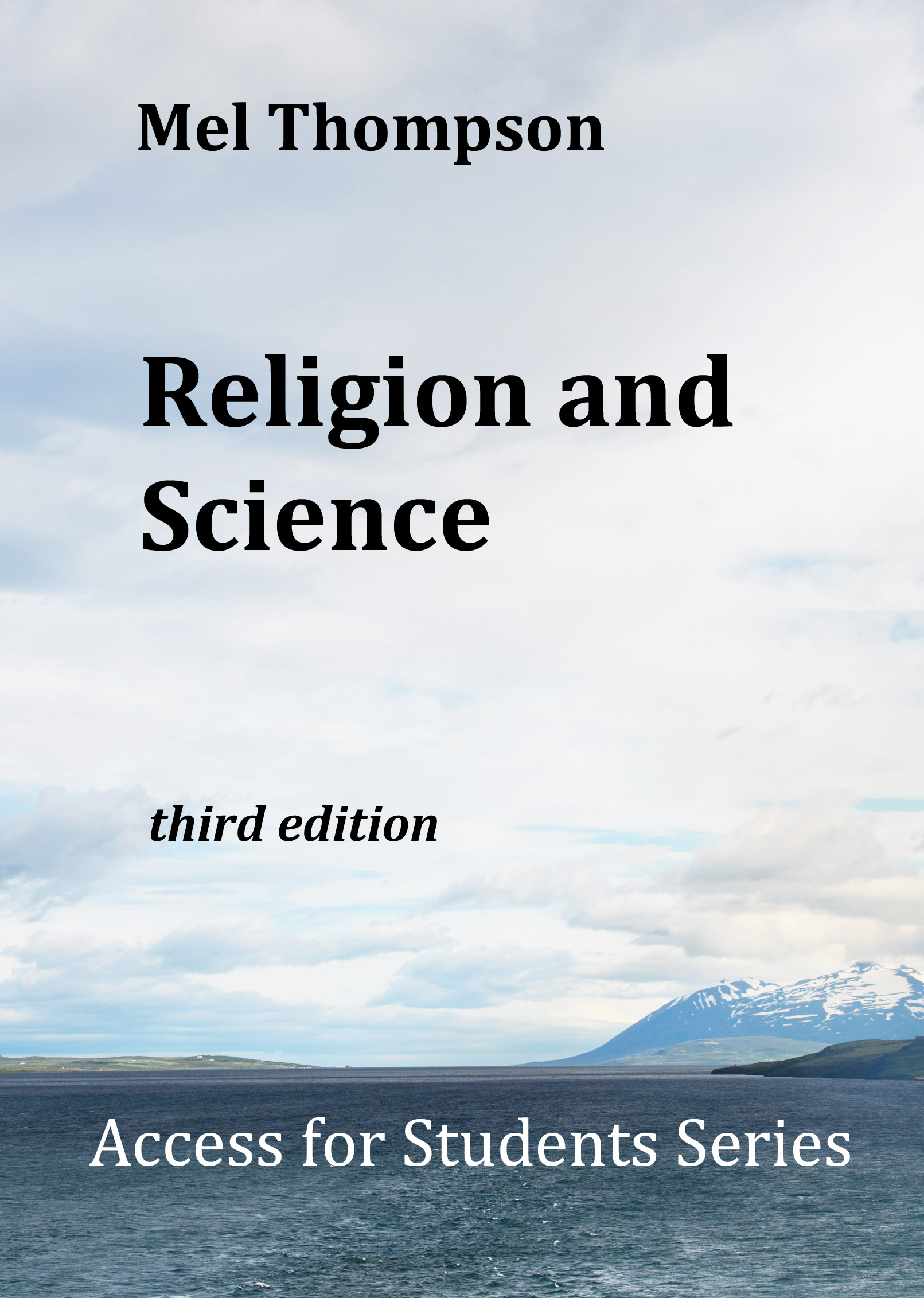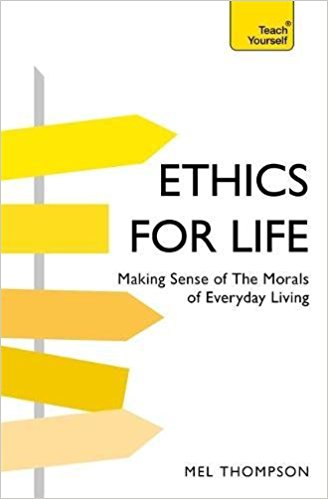Miracles
Contents
What kind of world do we live in?
Miracles and the problem of evil
The supernatural error – a personal comment
Miracles and Religious Studies
Studying what people mean by ‘a miracle’ is absolutely key to any Religious Studies course, because it raises fundamental questions about the nature of reality and the function of religion. Starting from Hume’s argument that there is never sufficient evidence to prove a miracle, our discussion can more outwards to consider the nature of scientific evidence, whether the universe is predictability, whether life is fair, whether anything happens by chance, the nature of religious language and what we mean by the supernatural.
Here are some of the questions you might want to ask:
-
If you believe that miracles are possible (in a literal, physical sense – but we’ll come to that later), it follows that you believe in a God who is both able to interfere in the workings of nature, and willing to do so. But what sort of God could that be? If people argue that nature is designed in such a way as to reflect the intentions of a loving God, does that not exclude miracles? If God needs a miracle to put something right, should he not be blamed for getting it wrong in the first place? So an understanding of miracles impinges on our understanding of ‘God’. In a well-ordered world, miracles should not be necessary.
-
How do miracles square with our understanding of science? Are religion and science opposed to one another? Can a scientist believe in miracles? Can a miracle be ‘proved’ by science and still remain a miracle?
-
Are miracles moral? If one person is saved when 99 are killed, can that person claim that they were spared through a miracle? And, if they do, does that not imply that the 99 who were killed were victims of God’s ill-will or indifference?
-
What do we mean by ‘miracle’? Is it more than a unique and unexpected event? If so, in what way?
What is a miracle?
Before we can ask if miracles are possible we need to sort out what we mean by a miracle:
· Some simply use it to refer to a pleasant surprise. “She’s done ‘miracles’ with that place,” means that she has made an unexpected success of decorating her new home. It is a ‘miracle’ because it is unexpected and very good news.
· It may be used of an unexpected and good event for which there is no known cause. For example, someone may recover quickly from a serious illness.
· It could be used to suggest that a person has special powers. Thus, in the New Testament, the ‘miracle’ stories of Jesus were recounted in order to illustrate his authority.
· It may by used to describe an event which is ‘a violation of a law of nature’. In which case, it is the sort of thing that is not explicable in terms of our present scientific knowledge. But, of course, that does not preclude explanation in the future.
If what you mean by miracle is limited to the first two of these, there is no problem. We don’t know the cause of everything that happens, even if we assume that there is a perfectly rational and scientific explanation for it. Our present knowledge is limited, but perhaps one day there will be a full explanation for this exceptional event.
The third of them is more important religiously. Accounts of Jesus’ miracles, and those of his followers, were written down in order to persuade people of Jesus’ authority and of his divine nature. And that continues to be one of the ways in which miracles are understood. For example, the Catholic Church has the ‘Congregation for the Causes of the Saints,’ which investigates accounts of miracles performed by those people who are being considered for canonisation – in other words, to become saints. You can’t become a Saint in the Catholic Church unless you have performed miracles, because they are taken as signs of God’s action through that person, and therefore his endorsement of their status. Investigations are made, witnesses interviewed, medical evidence is gathered. Something is only accepted as a miracle if there is strong evidence for it having taken place, and no scientific explanation.
And that last point brings us to the fourth way in which something may be described as a miracle – that it violates a law of nature. In other words, that it goes against what science would lead us to expect.
In addition, miracles (or the lack of them) have profound implications for emotional wellbeing and a sense of fairness and morality. Even today, religious people sometimes ask ‘Why should this happen to me?’ when something goes wrong. In a hospital, for example, relatives of seriously ill patients sometimes said ‘I don’t understand why this had to happen to him; he’s such a good, loving person.’ And it would have done no good to explain why in terms of genetics, or the way cancer can develop, or the chances of picking up infections. In their view, something has gone wrong, the world is unfair and someone must be to blame.
If you Google ‘miracles’ you’ll soon end up with sites showing you some weird but trivial phenomena. I tend to think of these miracles as ‘trivial’ if they are not significant in themselves – as would be the case, for example, of someone being instantaneously healed of a deadly disease – but only for their sensational nature and the effect they have upon the people who witness them.
Back in the 19th century, the philosopher Feuerbach argued that miracles were projections of people’s desires. In other words, you want something to happen – for someone to be cured, for example – and think that, in a world created and ordered by God, it ought to be the case. If what you want actually happens, the idea of divine intervention may be the way you choose to interpret that event, but it is not part of the event itself. We shall examine this later in these notes.
For now we simply need to be aware that there is a real problem with the vagueness of what is meant by ‘miracle’ and the range of ways in which that word is used. Hume’s argument alone is not sufficient for an appreciation of what is meant by a ‘miracle’.
An historical perspective…
Clearly, if we are to take Biblical texts literally, those who wrote them believed that events were not determined by fixed laws of nature, but were the result of the action of God or of the devil, or angels, or evil spirits. Hence, if something unusual happened, they would naturally ask ‘Why did God choose to act in this way?’ If everything reflects God’s purpose, then the unusual is a most clear example of what he wants to happen. That is very different from a scientific question about the reason for an event.
One of the remarkable features of the early Greek philosophers – particularly the ‘pre-Socratic’ thinkers of the 6th and 5th centuries BCE - was that they asked how one thing caused another, and about the general principles upon which the world worked. They were doing what we now see as early science, but they were the exception, certainly in terms of Western thought (Buddhist and Far Eastern philosophy at that time is quite a different matter, but beyond the scope of these notes). Most people at that time did not think in that way.
With the rise of Christianity, you have a blending of Greek thought and the older biblical tradition. Up until the 4th century, there was a range of philosophies influencing the development of Christian doctrine, but from the period when Christianity became the official religion of the Roman Empire, there was an increasing tendency to formalise belief, excluding minority views as heresy. In contrast to the Eastern philosophies, thinking in the West tended to include the supernatural and was therefore open to the interpretation of remarkable events as miraculous.
From the 13th century, with the rediscovery in the West of the philosophy of Aristotle, you have the development of general philosophical arguments about the nature of reality (e.g. forms of the Cosmological and Design arguments), which sat somewhat uneasily alongside the older supernatural approach. Then, from the 17th century, you have the rise of science with an expansion of empirical investigations and the assumption that human reason was autonomous. In other words, one should be able to understand and interpret nature without reference to any supernatural or non-rational views. The overall paradigm by which the world was interpreted was that of a deliberately constructed mechanism, with everything working together to produce an end result. In terms of the discussion of miracles, this period is exemplified most clearly by the work of the Scottish philosopher David Hume.
David Hume (1711 – 1776)
His argument is based on three assumptions:
-
All knowledge is derived from sense experience (empiricism)
-
A wise person proportions belief to evidence.
-
Religion is based on factual claims.
Now remember that this is the 18th century – a time when Newtonian physics had revealed a world that can be studied and understood in terms of mathematics, laws of motion and so on. In the Enlightenment, people believed that reason and evidence had overcome earlier superstition; the age of science had arrived.
He also argues that a wise man proportions belief to evidence – taking the empiricist’s view that all knowledge comes through the senses. But notice a limitation here: this refers to factual knowledge – information about the world. That’s what Hume is talking about and what science deals with – as an approach, this is less relevant when we’re dealing with art, or intuition, or relationships, or values. But again, Hume is utterly modern; he wants to subject accounts of miracles to proper scrutiny.
Hume assumes (as do most people, to the present day) that religion is based on factual claims and doctrines that are literally true. Of course, you might want to ask whether religion is simply a matter of believing facts, and I hope to show that it isn’t. But for Hume, the truth of a religion is the truth of the claims that it makes.
The argument takes this form:
-
A miracle is a violation of a law of nature
-
Belief should be proportional to evidence
-
But the evidence upon which we base a law of nature is always going to be greater than the evidence for a miracle.
-
Therefore, on balance, it is always going to be more likely that no miracle has taken place.
Hume points out that people did not refer to things that happened in the ordinary course of events as miracles, but only those that went against what people would normally expect. Hence he defines a miracle as ‘a violation of a law of nature’. He also believes that that the laws of nature are based on evidence. The more evidence we have, the more certain we are about them. For Hume, everything is a matter of probability, not certainty. The more evidence, the higher the probability; that principle has been fundamental to science. Here Hume applies it to miracles:
‘A miracle is a violation of the laws of nature; and as a firm and unalterable experience has established these laws, the proof against a miracle, from the very nature of the fact, is as entire as any argument from experience can possibly be imagined... The plain consequence is (and it is a general maxim worthy of our attention), ‘That no testimony is ever sufficient to establish a miracle, unless the testimony be of such a kind that its falsehood would be more miraculous than the fact which it endeavours to establish’...
(from his An Enquiry into Human Understanding)
This literal view of miracles has a long history, even among religious philosophers, thus Aquinas (13th century) in Summa Contra Gentiles, says that miracles are:
‘those things done by divine agency beyond the order commonly observed in nature.’
In other words, for Aquinas, miracles can’t simply be coincidences for which there could be a scientific explanation, they must show divine agency.
Eric Mascall (20th century), describes as miracle as
‘a striking interposition of divine power by which the operations of the ordinary course of nature are overruled, suspended, or modified.’
So Hume is not playing some trick by defining a miracle in this way. He is going along with what has been the majority view among religious people.
Equally he says that one should give credence to a claim on the basis of its likelihood and the trustworthiness and abilities of the person who makes it. So miracles are not to be believed if:
-
There are not enough witnesses
-
The witnesses are sympathetic to the idea and therefore open to bias in their interpretation of the event
-
The witnesses are generally ignorant (in other words, they are unlikely to conform to the 18th century view of rational investigation)
-
The miracles in different religions cancel one another out (again, on the assumption that religions stand or fall on the basis on unique factual claims)
He argues that, since we proportion belief to evidence, there can never be enough evidence to prove that a miracle has taken place. It is always going to be more likely that the person reporting it was mistaken.
But notice that Hume’s argument does not show that miracles cannot happen, but that – given the amount of evidence that has established and confirms a law of nature – there can never be sufficient evidence to prove that a law of nature has been violated.
Science is never absolute – it is simply the best interpretation of evidence. But that does not let miracles off the hook, because the scientific method assumes that, if all the evidence were known, then we would be able to explain why everything happens. In practice we don’t have all the evidence – all the possible variations that make each event unique – hence we should be cautious in saying that we know anything for certain. But certainty is exactly what the religious believer, checking on the account of a miracle, is hoping to achieve.
If a miracle is a ‘violation of a law of nature’ then Hume makes a good case for not believing an account of any such event. But that does not amount to an absolute proof that an unexpected, unique event cannot take place.
Hume ends with the rather cynical comment (taken up by Mackie in The Miracle of Theism) that those who believe are aware of at least one miracle, namely that belief has subverted all the normal operations of reason. In other words, to put it crudely, ‘It’s a miracle anyone can believe this, given the evidence to the contrary!’
But actually, that final comment is very instructive. It starts to undermine his position, as far as religion is concerned, because it suggests that the origins of religion are deeper and more powerful than mere reason or science. We are not dealing with a rational assessment of the world here, but something more fundamental. If people continue to believe in miracles, it suggests that factors other than an assessment of evidence are coming into play – and that requires a more serious look at what place miracles have within an overall view of the world. But more on that later…
Empiricism and Inductive arguments
Hume was an empiricist – in other words, he believed that all knowledge is based on evidence that we gain through the senses, and which the mind then sorts out to give us the information we need. To appreciate the significance of the empiricist position it is important to appreciate the nature of inductive arguments.
There are two very different kinds of argument: inductive and deductive.
A deductive argument works on the basis that, if one thing is believed to be true, another is ‘deduced’ from it. In other words it is based on logic.
By contrast, inductive arguments are based on evidence. I see the sun rise in the east each morning and therefore anticipate that it will always do so. But the strength of that anticipation depends on the amount of evidence I have gathered, and is always vulnerable to the possibility (however remote) that new evidence will contradict my assumption.
Mostly, science is based on inductive arguments – that is why the gathering of evidence is so important for science. Hume’s argument is inductive, since it is based on the vast number of occasions when a miracle has not happened. However, inductive arguments, being based on experience, always lead to degrees of probability – which is why Hume is careful to qualify his argument and explain that there can never be enough evidence to prove a miracle, not that a miracle can never occur.
Science cannot say that something can never happen, only that it is hightly improbable that it will happen. Light, for example, goes in straight lines. But that is not an absolute rule; near a very strong gravitational force, light rays bend.
There is an additional problem with the scientific gathering of evidence. In a scientific experiment, all extraneous influences are eliminated in order that the scientist can examine the relationship between the particular things under examination. Sometimes, to eliminate other factors (especially in medical experiments) you need a ‘control group’. But in real life, these other factors (an unknown number of them) are always present, and make every situation unique. Hence, the generalisations of science cannot determine exactly what will happen in any one particular situation – they will, at best, only give the probability of something happening, since they cannot know what other factors will come into play.
Attempts to wriggle out of Hume’s conclusions
Personal experience? You’d believe it if you saw it yourself, rather than just hearing an account of it. You can argue (as did Peter Vardy in The Puzzle of God) that Hume did not actually witness a miracle himself, perhaps he would have been convinced if he had.
More evidence? We only know a limited amount, insufficient to justify our claim that something is not done by the direct intervention of God. Would more evidence solve the problem? As mentioned above, the ‘Congregation for the Causes of the Saints’ investigates accounts of miracles. Something is only accepted as a miracle if there is strong evidence for it having taken place, and no scientific explanation. But this is simply a matter of eliminating all other explanations in order to find God – seeking for divine intervention as the possible explanation where our knowledge runs out. That approach is self-defeating from a religious point of view. It leads to what is called ‘the god of the gaps’ argument. God is not directly responsible for everything, but only for those things for which we have no explanation – and getting more remote and improbable the more we know about the world.
They don’t go against a law of nature. Some thinkers (e.g. Richard Swinburne) try to argue that a miracle is a ‘non-repeatable counter-instance of a law of nature’ – it leaves the law intact, but simply adds something different. I find this most implausible, since the ‘laws of nature’ are not fixed, but constantly being refined. A single counter-instance may count against a general theory (see the work of Karl Popper), and anyway you cannot know in advance whether your counter-instance is going to be non-repeatable!
A matter of speed? It would happen eventually anyway – the miracle has just speeded it up or slowed it down. A broken bone will eventually heal itself – but it cannot do so instantly. Equally, a person may recover from a serious disease, but this does not usually happen instantly. Thus it is not what happens that counts as a miracle, but the speed in which it happens. This interpretation cannot overcome Hume’s criticism, since the speed at which something happens is part of its fundamental nature, and part of what we observe to happen on a regular basis. It is no more probable that one of these things is going to happen instantly, than it is for something to happen that goes against what we know of the laws of nature.
A matter of timing? ‘I stopped to buy something, but if I hadn’t and had been there ten minutes earlier, I’d have been involved in the crash.’ – that sort of situation. The Red Sea happened to dry up at exactly the moment the Israelites wanted to cross it. But surely, that’s more likely to be put down to luck – it actually moves away from the idea of something being a miracle. We also need to recognise that everything is both utterly unlikely and absolutely inevitable at one and the same time. Every particular event is a unique combination of causes and conditions. If anything in the world were to be different, everything would need to be different, and timing is part of that, that something is caused to happen at one particular time rather than another could simply be a matter of chance.
God usually works by inspiring people. Another line of argument is that miracles are rare because generally God inspires people to deal with problems themselves. Richard Swinburne presents that view, including the idea that there needs to be suffering in the world in order for morality to be possible, or inspiration to help. (Which seems a bit like saying we’re glad cars go wrong, because it makes work for garages.) Maurice Wiles takes that same view, admitting the problem of evil because of all those situations where there is no miracle to overcome suffering, but arguing that God is still operative through inspiring people who are engaged in overcoming suffering. But this effectively ditches the idea of miracle entirely, or tries to separate it off from the general activity of God. It doesn’t answer Hume’s challenge, it just dodges it by re-defining God’s activity from something very specific to a more general influence.
None of these approaches is convincing to me – because they simply sidestep the issue. But they do raise the question of what we mean by a miracle. Can something be a miracle if it is compatible with our knowledge of the workings of the world?
What kind of world do we live in?
If the utterly unexpected happens – something absolutely unlikely and apparently impossible – there are three possibilities:
-
That some external deity has tinkered with the workings of the universe and suspended the laws of nature for his own particular purpose. That’s what Hume rejects. But, as we’ll see in a moment, it’s not necessarily the sort of ‘God’ that it would be intellectually healthy to believe in.
-
That we simply do not understand the natural process at work in this particular case. A scientist will welcome an anomaly – simply because it gives him or her a chance to refine the understanding of a phenomenon. If someone recovers fast from a normally incurable illness, a medic will seek for the reason. We may conclude that we don’t know – but assume that, if we had a total knowledge of the workings of the universe, we would know.
-
That the universe is not predictable, but open to random events. In other words, ‘laws of nature’ may spontaneously fail to apply in particular situations.
In terms of evidence, there is nothing to choose between 1) and 3) – and Hume’s argument really amounts to saying that, because the world is generally found to be predictable, we have to assume that it will always be predictable. In other words, if you choose to see the world as predictable, then you are eliminating the possibility of genuinely random events. (We must here eliminate discussion of Heisenberg and the random nature of sub-atomic particles – of course, at that level, we are dealing with statistical probabilities rather than individual events that follow predictable causality – but it doesn’t work at the level at which we operate within the world.)
So what sort of a universe do we live in? Hume’s argument is that the world is theoretically predictable and orderly. It is not random and things do not happen by chance or by the whim of a capricious deity. But that produces another issue for the religious believer…
A problem – the regularity in the Universe
It might be tempting to think that religion is on the side of a world where miracles (in the form of violations of natural laws) can happen, whereas science with its inductive arguments and gathering of data, leads to a world that is regular, predictable and free from divine influences.
But if the universe is not regularly organised, this presents a further problem for religion. The Cosmological and Teleological arguments for the existence of God were based on the idea that the world displayed a regularity and design, which suggested the existence of a divine designer. This creates problems for the idea of miracles because:
-
If the regularity and predictable nature of the world suggests that it is sustained and guided by God, ‘miracles’ – which go against that regularity – are an argument against God, by undermining the Cosmological and Teleological Arguments.
From a scientific point of view, everything would seem inevitable – it has a complete set of causes – but also absolutely unlikely. Think of how many causes have brought you to be sitting here this morning. If any of them had been different, you wouldn’t be here. Hence I regard it as highly unlikely that you are here. But you are!
A unique event is not necessarily caused by something outside the normal scientific world of cause and effect – it is just an event for which a complete set of causes has not yet been discovered.
Some philosophers of religion (e.g. Aquinas) look to the rational and regular aspects of the world as evidence of an overall intelligent creator – and this was particularly popular in the 17th and 18th centuries; the world was seen as a mechanism designed and maintained by God (so Isaac Newton, Francis Bacon). Others look to miracles and religious experiences - particular moments that go against the general experience of the world – as the basis for belief in a God who is able to disrupt the rational and the regular.
Hume was an atheist, but the view of miracles he attacks was actually one that undermined the very basis for a form of belief in God (deism) that was popular at the time he was writing. Hume spotted the inability to reconcile a God of the ordered mechanism with the earlier supernatural God of miracles. More on that later…
Miracles are not shown by analysis
You can describe san event totally, and yet you will find nothing in that description that corresponds to the word ‘miracle’. That’s not surprising. You could, after all, cut me up into little pieces, examine all my individual tissues, including my brain, and yet find nothing that was exclusively and uniquely ‘Mel’. But that does not imply that ‘Mel’ does not exist, simply that ‘Mel’ is a conventional way of describing the bundle of living organs that comprises ‘me’. When the Catholic Church investigates a miracle, it does no more than try to establish the facts, and to ascertain that there was no existing medical or scientific explanation for what took place.
If you are atheist, then sudden recovery from illness, or a lucky escape, may be welcome, but would not be reason to start believing in God – in other words, there is nothing in those events that compels anyone to interpret them as miracles. So a miracle is not just a random or unusual event – it is one that we choose to interpret in a way that sees it as being there deliberately to benefit us in some way, or to fit in with our beliefs about what God might wish to have happen.
Perhaps the best argument for testing out miracles was given by William Paley in 1859, who argued that miracles are ‘worthy of credit’ if people’s lives are changed by them. In any case, to understand the religious significance of the idea of ‘miracle’ we will need to go beyond analysis and see how it functions within the context of religious language and activity.
It all comes down to interpretation
Unless an event has religious or personal meaning, it is not likely to be called a miracle. An event is not a miracle because it’s unique – every event is unique in some respects – but because it is significant and because its interpretation helps the person who believes in it to make sense of life.
What makes something ‘religious’ is generally a matter of interpretation, rather than fact. Religious people may argue that a miracle is an event that is seen as having special significance in showing God’s will, not necessarily something against a law of nature. Indeed, an inexplicable event need not be seen as a miracle, and may have no religious or personal significance whatever. Science only makes progress because it encounters inexplicable or unique events – the bending of light, the physics of black holes, the early inflationary nanoseconds of the universe. So, for an understanding of miracles from a religious point of view, something else is needed.
To call something a miracle is not to describe it, but to give it value. ‘Miracle’ is an interpretation of an event, not an event in itself.
Of course, it is possible to argue that God is everywhere doing miracles all the time. Every birth is a miracle. The problem with this is that it effectively makes the concept of miracle redundant. A religious person may see God acting everywhere, in common events as well as in rare ones. Unless a miracle is at least a violation of a law of nature, even if it is many other things as well, then there seems little point in calling it a miracle at all.
A projection of our wishes?
Feuerbach – God is a projection of the highest human qualities. The 19th century philosopher Ludwig Feuerbach (1804-1872) argued that miracles were projections of human desires. They represented the things that people longed for, rather than those that actually happened. So perhaps the idea of miracles is wish-fulfillment. He saw the idea of God as being a projection of our highest aspirations, the ultimate qualities by which we should live. This gives a very positive function for religion, and one that does not require belief in a supernatural realm.
Marx – religion is the ‘heart of a heartless world’, the ‘opium of the people’. Marx’ view is both positive and negative with respect to religion. On the one hand, it suggests that people long to find meaning and purpose in life, and religion tends to supply that overall view. On the other, he argues that, in aspiring to some heavenly reward after this life, people were actually discouraged from taking the practical steps necessary to improve their situation. In that sense, he saw religion as a dangerous distraction. But, distraction or not (and, of course, Marx was influenced by the religious views he encountered, many religious people today would not accept the downgrading of this life in favour of post-death compensation) it does highlight the longing and need that gives fuel to religion.
Freud – God as an adult’s replacement for a loving father figure. Whether or not one accepts all aspects of Freud’s view, his idea that God was used to provide a substitute loving father figure to whom one might turn for help in adult life, provides another context for thinking about miracles. Just as a physical father might step in and help his child in distress, so it is hoped that the father substitute would be prepared to intervene and shelter his adult offspring from life’s harsher realities.
This no more than touches on the important work of these thinkers, but the key question it raises is this: Is any such projection healthy or unhealthy. Is religion, even if a projection of the human situation, something inevitable? Is it something we grow out of, or something that we grow into (Jung, rather than Freud, is the thinker to study for that)? Is the quest to see an event as a miracle as an unhealthy distraction from getting on and accepting life’s fragility and our responsibility to improve what we can? Or is it an inevitable feature of the human desire to make sense of life and give it direction?
Miracles and the problem of evil
Why are miracles necessary in a world ruled by an all-loving, all-powerful and all-knowing God? Why should anyone pray for a miracle, if God would otherwise not perform it?
If God needs a miracle to put something right, should he not be blamed for getting it wrong in the first place? So an understanding of miracles impinges on our understanding of ‘God’. In a well-ordered world, miracles should not be necessary. You could argue that miracles (if they take place at all) are evidence of God’s mistakes – they are his attempts to put things right.
If God’s action is seen as particular – in other words, he intervenes in particular circumstances – then why does he not do that all the time? Here is the problem of evil – Why does a loving and omnipotent God not heal every dying child?
The philosopher Voltaire (1694-1778) argued (in his Philosophical Doctrines, 1764) that miracles would imply lack of forethought on the part of God – in other words, even entertaining the idea of miracles starts to undermine the concept of a omnipotent creator. He supported the idea of ‘natural religion’ as shown in the cosmological and teleological arguments. And Spinoza (in Tractatus Theologico-Philosophicus, 1670) argued that God’s will would be inviolable, whereas miracles suggested its violation.
So miracles appear to undermine the whole idea of an omnipotent, omniscient and loving God. They seem to imply a God who favours one over another, and who constantly intervenes to correct the natural workings of a world that he has created and ordered in the first place.
And on top of that, miracles – if they take place – suggest that the world is unfair; some are to be treated better than others. And the longing for a miracle, even praying for a miracle, implicates us in wanting a world that is unfair. We know that thousands of others are dying, but let it not happen to the person we love!
Armies line up in battle, and on each side chaplains conduct worship and men pray that, by some miracle, they may be victorious and crush the enemy.
Miracles and a pair of Gods
There are two very different kinds of reality to which the word ‘God’ is applied – which I’ll call ‘A’ and ‘B’. I want to argue that the discussion of miracles rules one of them out as an intellectually, emotionally and religiously satisfactory option.
A) ‘God’ is a word that some people use to refer to the reality ‘within which we live, move and have our being’ (St Paul, Acts 17)
OR
B) ‘God’ is a supernatural being, believed by some to exist, distinct from and external to the ordinary workings of the world – the god of Deism and of the popular imagination.
Consider God ‘A’:
In the Hebrew Scriptures, God is ‘that which is’
St Paul ‘ in whom we live, more and have our being’ (Acts 17 – Paul in Athens), an unknown god who was contrasted with physical images.
Early Christian views saw him as present everywhere, omnipotent and so on.
Aquinas saw him as the uncaused cause etc – the fundamental universal reality.
Most clearly expressed by the 20th century theologian Paul Tillich. He argued (in Sytematic Theology, Volume I) that God is ‘being itself’ not a being – using concepts found in Heidegger’s early work.
Ordinary things exist because they have boundaries – they ‘stand out’ (the original meaning of ‘exist’) against a background. But God cannot exist in this sense, because he is said to have no boundaries – there is nowhere that God is not and nothing that God does not do.
Now consider God ‘B’:
By contrast, there is the popular notion that the word ‘God’ refers to a being or some sort – the greatest being, but a being alongside others. Such a being can have its own agenda, can favour one thing rather than another, can do one thing rather than another. It is a being who might or might not exist – requiring a person to ‘believe’ and trust in him. A being who is found, not in the everyday experience of life, but at the periphery, in the unusual, the unexplained.
So which ‘God’ is suggested by miracles?
-
If you believe that a miracle (in Hume’s sense) has taken place, your idea of God is likely to be magical – a secret, external force that can (if asked nicely) intervene and change the workings of the world. In other words, ‘God B’
-
If you hold the ‘God A’ view, every event will be potentially a way of encountering God. Whether what happens is explicable or not is irrelevant to its religious status.
Hence, your view on miracles is a good indication of your view on God.
-
Is God the name we give to the overall meaning and purpose of the universe – the source of whatever is loving and creative? If so, fine: but you are likely to see God in every event, not just in those that are absolutely unlikely, or miraculous.
-
Or is God the name you give to a particular personal being who can come and interfere in the normal working of the universe, a being who will respond to requests if he or she chooses, and who will selectively choose to make things better or worse? If so, you are indeed going to look for miracles as evidence of God’s activity, but you will then have to explain the resulting sense of unfairness.
So I suggest that miracles tend to detract from a mature concept of God! If we believe that the world is predictable, and everything could theoretically be explained, if we had sufficient knowledge, then we have no need of a God hypothesis to explain anything. There are simply things that are beyond our present knowledge – we may understand them one day, or we may never understand them.
On the other hand, if the world includes random events for which there is no known or knowable cause, then it is difficult to see how anything need be ascribed to the action of God. Things happen, predictable or not, and that’s all there is to be said.
Theism describes God as omnipotent and omnipresent. He is able to do anything and he is present everywhere. Therefore there is nothing over which he does not preside, nothing he does not do. That tends to rule out the idea of miracles as special examples where he steps in to act.
So miracles – particularly as Hume saw them – presuppose a god who is absent for most of the time. That view is called ‘deism’ (and it was popular in the 18th century) but it is not theism.
Miracles try to point to a ‘God’ who does not exist:
-
The literal view of miracles points to a type ‘B’ god. There can be no evidence that such a god exists and, if he did, would be morally indefensible.
-
A type ‘B’ god is incompatible with the traditional arguments for his own existence.
-
At best, such a ‘God’ would be a ‘God of the gaps’ receding as science gives better explanations of unusual events.
There is a general assumption that the world is divided into the physical world of experience and the mental world. Events are either physical or mental (Descartes was responsible for that dualism). In such a scheme it is difficult to know where we place God. He cannot be part of the empirical world, but neither do believers want to identify him simply with the mind.
Buddhism makes the distinction between conventional and absolute truth. On that basis one might argue that ‘God’ is a conventional way of describing reality, but not an absolute one. God cannot be in the world of experience (any more than you can – God doesn’t ‘exist’ in that sense, but neither do you). The problem is that miracles try to pin God down to the empirical world – we look for evidence of his activity – which is exactly what he is not. The more successful the quest to prove that miracles can happen, the more certain it is that the agent of such miracles is not God.
The Supernatural Error – a personal view
-
New atheists tend to argue that ‘real’ religion involved belief in the literal existence of a supernatural god.
-
But such a crude, ‘fundamentalist’ notion of God is incompatible with much of the best religious thinking.
-
Miracles – taken in Hume’s sense – suggest such a supernatural god. Therefore, in regarding them as incredible, he actually does religion a favour.
Personally, I think the word ‘God’ is a way of describing reality – one that some people find useful. There is only one reality, to be examined in many different ways. Empirical science deals with it objectively, analysing experience and predicting on that basis. But it does not really address what it is like to be engaged with the world.
I think that supernaturalism is an inadequate way of thinking of God – it makes him into a crude, semi-magical being who might or might not exist. I don’t think that is credible today, and – most particularly – I don’t think it does justice to some of the concepts of God that have been around for many centuries.
In many ways, I think that some concepts of God are a form of verbal, conceptual idolatry. A doctrinal formula or theological idea, which is meant to point towards a ‘God’ who is beyond direct knowledge, starts to be regarded as a definition of God to be accepted literally and defended.
To argue that miracles can happen is most likely to promote atheism, simply because the god implied by them would be self-contradictory and morally indefensible. And notice that the new atheists (e.g. Richard Dawkins, Sam Harris and – although he really should know better – Anthony Grayling) argue that religion is – and should be - about a literal, crude, miraculous concept of god. Miracles play straight into their hands.
In Karen Armstrong’s The Case for God (2009) she makes clear that the idea that belief should simply be a matter of accepting the literal truth of dogmas is very much something that came about since the 17th and 18th centuries, and fundamentalism is a 20th century phenomenon. New atheists tend to argue that fundamentalism is ‘real’ religion, and go about showing that it is irrational. They’re right; but fundamentalism is a distorted form of religion. Don’t forget that in the early centuries, Christians were condemned as atheists, because their idea of god was so different from those of the existing Greek and Roman culture.
Now you see why I regard the issue of miracles as so central to the philosophy of religion. How you understand (or whether you believe in) miracles is directly connected with the whole question of whether religion should be regarded as natural or supernatural.
© Mel Thompson, 2015


